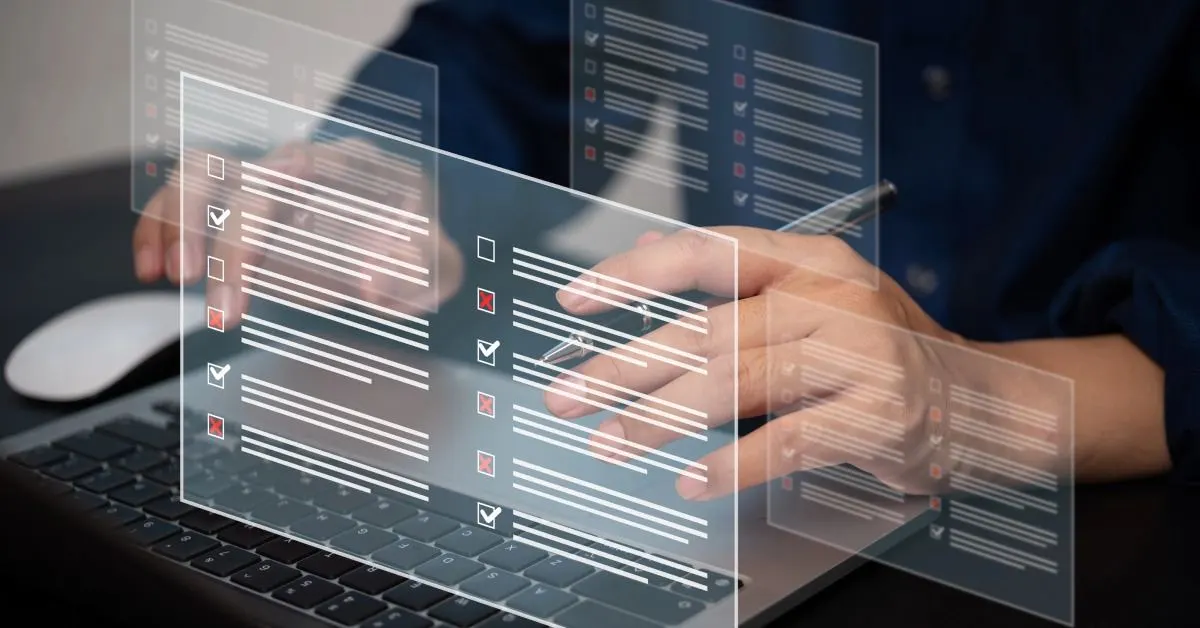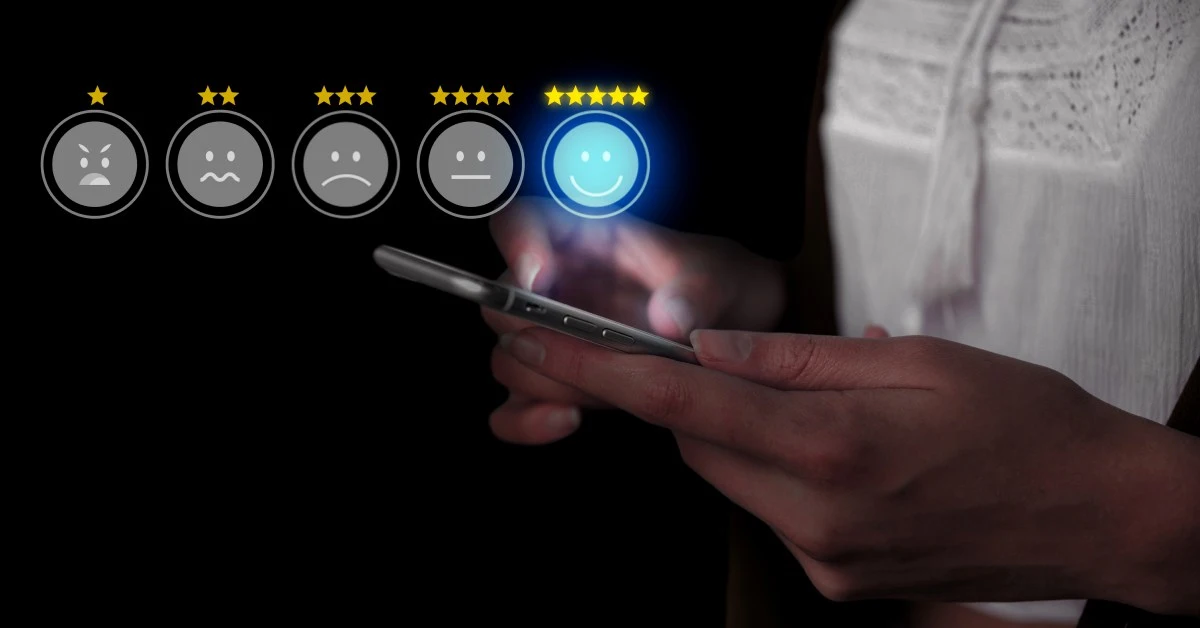40 Essential Customer Service Survey Questions You Need to Ask

81% of customers are willing to pay more for better customer service. Which makes you wonder what could be the best way to improve it? Simply put, one of the best ways to improve customer service is to ask customers directly for feedback with the help of a customer service survey questionnaire.
The data collected through surveys helps you measure your business’s service quality, which, as we know, can contribute to customer retention.
Did you know a 5% increase in customer retention can increase profits by up to 95%?
In this post, we will touch upon customer service survey questionnaires and some best practices to ace them.
Table of Contents:
- What is a Customer Service Survey?
- 40 Customer Service Questions You Need to Ask
- Best Practices for Designing Customer Service Survey Questionnaire
What is a Customer Service Survey?
Customer service survey is a list of questions you can ask to determine what customers think about your company. The main purpose of this survey is to measure customer satisfaction and collect their feedback.
With the help of this feedback, you can identify areas of improvement in your business and act on them.
A customer service survey questionnaire helps you enhance your customer experience and consequently increase customer acquisition and retention.
40 Customer Service Questions You Need to Ask
To get the most out of your customer service survey questionnaire, tailor the questions to how customers interact with you. (e.g., phone, email, in-store visit) and what information different departments need (e.g., sales, technical support).
Agent-Specific Questions
Every interaction your customers have with your customer support agents shapes their experience, for better or worse. That’s why asking agent-specific questions is important to let you know how your agents are performing.
Examples of Agent-Specific Questions for Customer Service Survey
- How knowledgeable would you say our customer service agent was? (1 – Not Knowledgeable at All, 5 – Very Knowledgeable)
- How polite and attentive were our customer service representatives during your conversation?
- How confident were you in our agent’s ability to resolve your issue?
- How helpful did you find our customer service agents?
- How would you rate the support provided by our customer service representatives?
- How personalized was the service you received from our staff?
- How effectively and empathetically did our customer service speak to you?
Product-Specific Questions
The quality of the product you offer also plays a vital role in the customer’s journey. Asking product-specific questions to your customers allows you to improve the product and customer experience.
Examples of Product-Specific Questions for Customer Service Survey
- How do you evaluate the quality of our products?
- How many of your initial expectations were met by our product?
- What are your chances of purchasing our product again based on quality?
- How do you use our product?
- Is there anything we can do to improve your experience with our product?
- How well does our product perform compared to our competitors’ products?
Follow-Up Questions
Follow-up questions are typically asked after customers have provided feedback, especially negative feedback, but can also be used after positive feedback to identify areas for exceeding expectations. It’s important to personalize your follow-up questions based on the initial feedback.
Examples of Follow-Up Questions to Use in Customer Service Survey
- How can we improve our services and the quality of our products?
- Based on your experience, what are your chances of staying with us?
- Are there any other services or features you would like us to offer?
- What additional support can we provide to enhance your experience?
- How would you describe your overall experience?
Open-Ended Questions
Open-ended questions require detailed answers and go beyond a simple yes or no. They could be valuable for understanding your customers’ experiences in their own words. By using open-ended questions, you gain insights you might not have anticipated.
Examples of Open-Ended Questions for Customer Service Survey
- What was the most satisfying area of your experience?
- What was the most disappointing area of your experience?
- What difficulties did you encounter while interacting with our agents and using our services?
- Can you describe a service interaction that exceeded your expectations?
- What’s one thing you would change about our product or service and why?
- Which improvements we make will satisfy you most? Which improvements would make you most likely to recommend us to others?
B2B Specific Questions
B2B (Business-to-business) survey questions are designed to understand your customers’ needs and satisfaction, ultimately helping you retain their business. By asking the right questions, you can gain valuable insights into the value you deliver and how your product or service is impacting their success.
Examples of B2B Specific Questions for Customer Service Survey
- How well do our services integrate with your current business processes, and how has this impacted your overall efficiency?
- How do you see the performance of our agents?
- How would you rate our solutions that help you execute your goals?
- Can you describe the impact our service has had on your operational efficiency?
- How responsive have we been in addressing your business needs and challenges?
- On a scale of 1 to 10, how likely are you to continue our business partnership? Is there anything we can do to improve your experience?
B2C Specific Questions
B2C (Business-to-consumer) specific questions are designed to gather feedback from individual customers about their experience with your products and services. These questions help you understand their needs, wants, and satisfaction levels.
Examples of B2C Specific Questions for Customer Service Survey
- How well do our products/services meet your personal or family needs?
- How easy was it to set up and use our product?
- How clear are our product instructions or service guidelines?
- How satisfied are you with the value for money of our products/services?
- How likely are you to purchase our product/service as a gift for someone else?
- What’s one thing we can do to improve your experience with our company?
Metric-Specific Questions
Metric-specific questions measure customer experience by asking questions based on different metrics, i.e., CSAT, NPS, and CES.
Examples of Metric-Specific Questions
CSAT (Customer Satisfaction Score)
- How satisfied are you with our products and services? (Highly Satisfied, Highly Dissatisfied)
- How would you rate your overall satisfaction with our customer service on a 0-10 scale?
NPS (Net Promoter Score)
- On a scale of 0-10, how likely are you to recommend our company to friends or colleagues?
CES (Customer Effort Score)
- How easy or difficult was it for you to interact with our services and touchpoints? (Very Difficult, Very Easy)
Best Practices for Designing Customer Service Questionnaire
1. Define Your Goals
Before creating your customer service survey questionnaire, clearly define your goals. What do you want to achieve, and how will you use the data from the survey? Are you mapping customer satisfaction, collecting feedback, or identifying weak points to improve your service?
Your goals will guide the types of questions you ask and ensure each question serves a purpose.
2. Keep Your Survey Short
Value your customers’ time by creating short surveys and asking questions that yield valuable data.
Customers are not ready to answer extended surveys and complex questions. Instead of creating a long survey, create a short or two separate surveys.
3. Mixed Question Type
To gather the most valuable data from your customer service survey, consider using a mix of question types. This approach provides a more comprehensive picture of customer sentiment.
Closed-ended questions offer pre-defined answer choices, making them easy to answer and analyze quantitatively (e.g., multiple choice, Likert scales).
Open-ended questions allow customers to answer in their own words, providing rich qualitative data and deeper insights you might not have anticipated (e.g., “What can we do to improve your experience?”).
4. Make the Rating Scale Consistent
Maintaining a consistent rating scale in customer service surveys is important because it ensures respondents interpret all your questions the same way. This allows you to compare and analyze the data you collect accurately.
The most common format for Likert scales is a 5 or 7-point scale, with 1 representing the most favorable option and the highest representing the most negative option (e.g., 1= Very Satisfied, 5= Very Dissatisfied).
5. Create an Engaging Introduction and Closing
Provide specific information at the beginning of the survey about its purpose and how long it will take. With this, customers will not face trust issues and can answer questions without apprehension.
You can also write a thank you note at the end of the survey to express appreciation for the time spent by the customers. Give them hope that their suggestions will be implemented.
Key Takeaway
Remember, happy customers are loyal customers! Using a customer service survey questionnaire to identify areas for improvement, you can keep your customers satisfied and return for more.
Related Post
Copyright © gocustomerexperience.com. All Rights Reserved.




